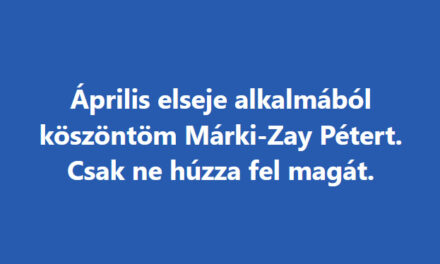About half of young Hungarians have felt that they have been harassed on the Internet. According to expert Zoltán Szűts, speaking to Magyar Hírlap, the most important thing would be to teach how the digital world works already at school.
The Hungarian Teens on the Net 2021 survey recently pointed out frightening phenomena: according to the findings of the public opinion poll conducted by Be Social, 51 percent of the respondents - about five thousand young people between the ages of 14 and 25 - have already asked for erotic photos on the Internet.
Even more, 56 percent of them have already received this type of admission . Also, 51 percent of the respondents answered that they had felt that they had been harassed on the Internet, which is seven percent more than in the 2019 survey. It is extremely common for young people to receive a message from a person they do not know in real life - this happened to 89 percent of the respondents.
"The communication habits of today's youth are radically different from those of the previous generation. People born after 2000 use traditional communication channels much less, e-mail or mobile phones are not popular among them anymore," explained digital media researcher Zoltán Szűts.

Photo: MH/Péter Papajcsik
He explained that young people use so-called hybrid forms of communication , platforms such as Facebook, which is both a social networking site and a chat interface, or Viber, which allows you to make phone calls, video calls and chat in writing. “These technologies provide a high level of experience and expect fast feedback from them, while allowing them to engage in an unprecedented number of conversations. It necessarily follows that they cannot filter their communication activities in advance, and they get involved in many conflict situations, some of which are harassment," said the associate professor of Károly Eszterházy University of Eger.
According to the researcher, online campaigns are only good for firefighting, he would rather focus on school education. "The digital culture subject has appeared in schools based on the new National Core Curriculum. As part of this, children must be taught how social media works. Get to know his logic, draw your own conclusions.
the full content of the article here .
Photo: infovilag.hu












